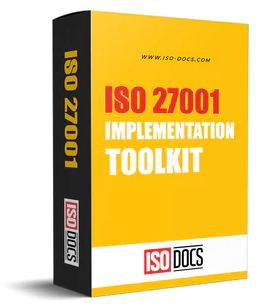Advantages Of An ISMS Based On ISO/IEC 27001
Introduction
Business in today’s world is a land of opportunity - achieving technological advancements, scaling new heights, unfolding new business horizons, but on the other side of this there is a constant threat and vulnerabilities towards the cybersecurity context. It is a necessary strategic move which every organization shall focus on information security, handling sensitive data, safeguarding these information assets. This is where an Information Security Management System (ISMS) based on ISO/IEC 2001 comes into picture. ISO/IEC 27001 is the internationally recognized standard for information security management, offering a robust, risk-based framework to systematically protect, monitor, and improve the security of confidential data. With cyberattacks and data breaches making headlines around the world, ISO/IEC 27001 certification is more than just a badge - it’s an assurance of security, credibility, and business resilience.

Advantages Of Information Security Management System
1) Comprehensive Risk Management
ISO/IEC 27001 mandates a structured, process driven, risk management approach to information security. Organizations can define a well planned implementation process by identifying vulnerabilities through identifying information assets, risk assessments, define the impact and likelihood of identified risks & vulnerabilities and come up with risk treatment methods/controls. This proactive risk management keeps security measures relevant and effective as threats evolve and grow with the growth in technology.
2) Cost Efficient - Prevent Losses and Save Money
Security incidents can lead to massive financial losses. These may include negative experiences such as hefty fines, costs related to IT remediation, and damage to the reputation of the company organization. An ISMS aligned with ISO/IEC 27001 can help the organizations save their costs for breach prevention in the future. The use of an ISMS in certification and maintenance is budget friendly compared to the likely cost of a one-off serious breach-related incident.
3) Enhanced Reputation and Client Trust
ISO/IEC 27001 certification is proof positive that your organization is prepared to meet the highest standards of data protection; and this is the guarantee that creates trust with current clients, attracts new businesses, and builds customer loyalty, especially critical in sensitive sectors like healthcare, finance, or IT. With such a certification recognized, organizations are truly able to differentiate themselves from one another in competitive markets and increase retention.
4. Compliance and Legal Security
The regulatory environment is becoming ever more arduous. ISO/IEC 27001 provides a baseline for ensuring an organization's compliance with many international legal requirements to prevent punishment by the law. This compliance means that the organization must handle its data lawfully and also helps strengthen governance and market reputation.
5. Global Market Entry and Competitive Edge
Being globally accepted (over 150 countries) makes ISO/IEC 27001 a gateway to international markets. Certified organizations are usually the favored partner when bidding for global contracts and can respond to procurement needs obliging ISO/IEC 27001 compliance much faster. This advantage can shorten sales cycles and generate new sources of revenue.
6. Maximized Efficiency and Strategic Focus for the Organization
An ISMS implements a coherent approach to security-related operations: incident reporting, access control, and data-handling procedures become consistent across the organization. Clarity of written policies and tested processes reduces confusion and increases productivity, permitting employees to concentrate on their real business goals rather than fire-fighting security issues.
7. Continual Improvement and Organizational Resilience
The concept of continual improvement at the heart of ISO management system standards ensures periodic update of risk assessments and security controls. This dynamic process guarantees that the organization remains resilient in the face of ever-evolving technologies and threats, thus guaranteeing long-term business continuity.
8. Better Organizational Structure and Security Culture
Through its insistence on clear documentation and assignment of duties, an Information Security Management System enables better organizational structure. Employees know what to do and when, while upper management is routinely assured of the adequacy of the risk management system. Awareness of security issues rises, and the complete organization rallies around the protection of its critical assets.
9. Third-party Assurance: Trusted Validation
Certification by an accredited third-party body provides external validation of your security-instill confidence in customers, partners, and regulators. It is evidence that your ISMS is fit for purpose and that the right controls are in place, thereby enhancing the company's image and credibility.
10. Mitigating Human Error
Human error remains the leading cause of security breaches. Through the training of employees and clarity of security processes, ISO/IEC 27001 greatly minimizes the chance of risk from human error and ensures comprehensive protection of your data assets.
11. Facilitating Digital Transformation and Innovation in a Secure Manner
ISO/IEC 27001 ensures that security is an integral part of any digital transformation, product development, and/or innovation initiative from day zero. This gives organizations the assurance and comfort to apply new technologies for organizational growth while keeping value at risk safe.
12. Quality Assurance and Standardization Across Operations
An ISO 27001 certification assures solid security checks during all phases of product development, system management, and day-to-day operations. This consistency protects sensitive information; it enforces policies throughout different teams and lessens the complexity of process evaluation and improvement.
13. Entry to Bigger Contracts and Partnerships
ISO/IEC 27001 certification is increasingly becoming a requirement for contracting with reliable partners. Being certified enables the organization to pursue high contract value bids, especially against the government or large enterprises, and enhances supplier and partner relationships through established credibility.
Conclusion
An Information Security Management System based on ISO/IEC 27001 goes far beyond being just another IT necessity; it is a strategic asset. From strengthening cybersecurity and driving continual improvements to penetrating new markets and winning client trust, the advantages make ISO 27001 a must-have for every information-driven organization. The introduction of ISO 27001 brings information security from a defense to a strategic decision to initiate growth, thus ensuring resilience and sustaining achievement in the digital landscape. In a nutshell, organizations investing in ISO/IEC 27001 are protecting the most important factors: their data, their reputation, and on top of these, their future.

